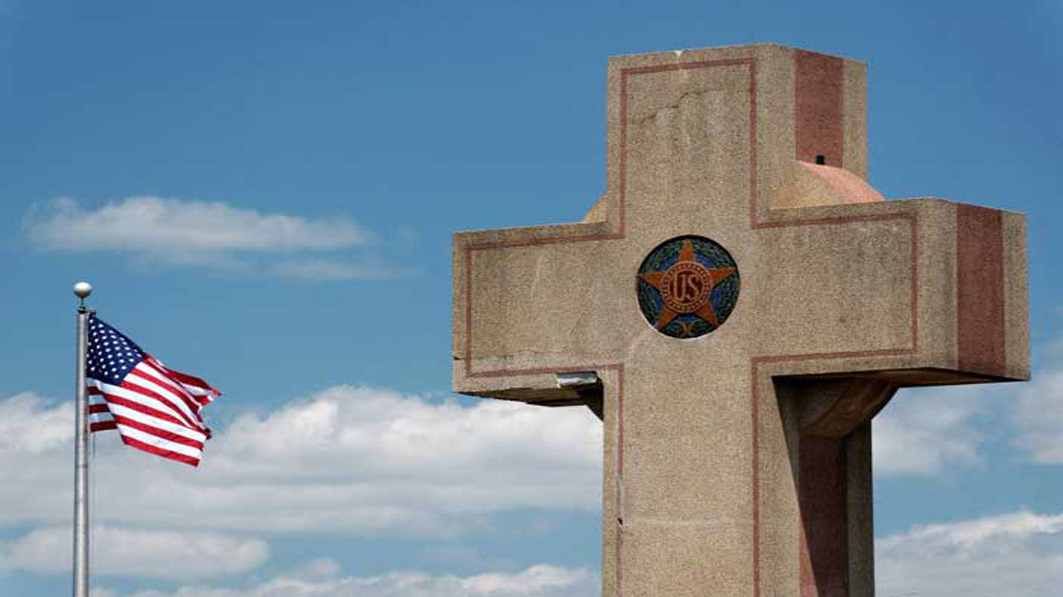Honoring America’s soldiers who make the ultimate sacrifice for their country is a long standing tradition. We pause each Memorial Day to think and contemplate the heroism exhibited by these patriots; we visit military cemeteries, like Arlington National Cemetery, to pay our respects. Concrete and steel memorials to those men and women who gave their lives for our country dot the landscape.
No one who visits these cemeteries and memorials, mostly situated on public land, believes that the government is promoting the Christian religion, or in the words of our First Amendment to the Constitution, attempting the “establishment of religion.”
Well, almost no one. In recent times, organized atheist groups like the American Humanist Association and others have become militant in their attempts to eradicate all Christian symbols from the public square, in a campaign based on the erroneous application of the Supreme Court phrase, “separation of church and state” from its 1947 opinion in Everson v. Board of Education, which it borrowed from an 1802 Thomas Jefferson letter to the Danbury Baptists.
Over the years, the U.S. Supreme Court’s cases on the First Amendment’s “Establishment Clause” have only served to further muddle, rather than clarify, what the Framers understood the meaning of the First Amendment to be. The Bladensburg Memorial is just one in a line of similar court cases in recent times, but the odd fact is that the Supreme Court has never ruled definitively on whether a war memorial in the shape of a cross is permitted by the First Amendment. They now have that opportunity.
The American Legion helped dedicate the Bladensburg War Memorial in 1925, and is now asking the Supreme Court to weigh in and reverse the 4th Circuit U.S. Court of Appeals’ ruling that the memorial’s location on public land, and maintained by the state of Maryland, constituted a violation of the Establishment Clause.
If the 4th Circuit’s opinion and its reasoning are allowed to stand, numerous war memorials around the country, including several at Arlington National Cemetery, would be endangered.
The Supreme Court has agreed to hear this case. Oral arguments will likely be after the first of the year, and a final decision sometime before the end of June, 2019. The case name is American Legion v. American Humanist Association. Case-related documents can be found here.






